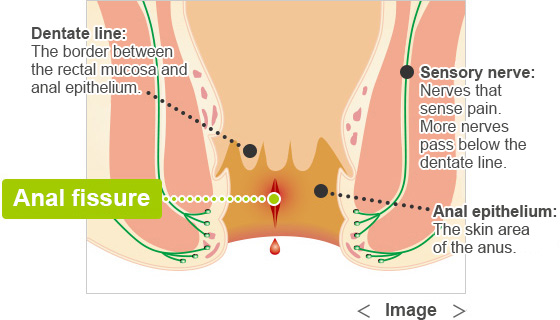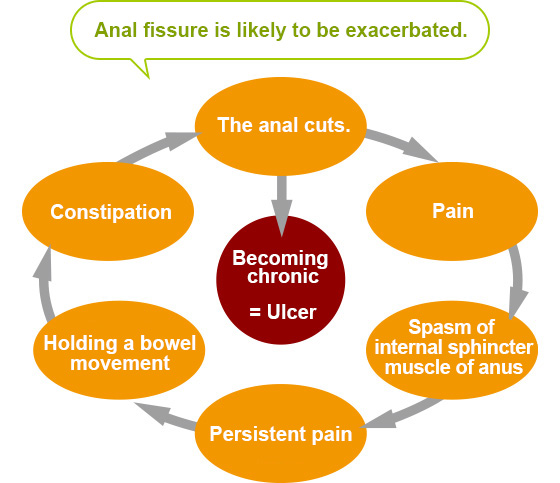
Anal fissure is a condition in which the anal epithelium below the dentate line cuts. It tends to worsen because the pain is severe and it is hard to cure. In addition to anal fissure, it is also called torn hemorrhoids.

It causes severe pain and bleeding during a bowel movement. Usually, it does not bleed much, just a stain on the toilet paper. If the stool is hard, pain will increase.
The main cause is hard stool due to constipation or diarrheal stool that rapidly passes through, which causes a cut on the anal epithelium.
Anal fissure is a hemorrhoid that tends to worsen.
Once anal fissure develops, severe pain makes people hold a bowel movement. As a result, people tend to be constipated, and hard stool easily hurt the affected area when they have a bowel movement.
Since it causes sharp pain, people again tend to hold a bowel movement, which causes constipation all the more.
Moreover, the stool gets stuck to the wound site and inflammation occurs, which makes it more difficult to cure.

Anal fissure is said to be more common in women. This seems to be related to the fact that many women suffer from constipation by restricting their food intake due to diet, etc.
When the amount of food intake is reduced, the function of the intestines is weakened and constipation is likely to occur. As a result, stool becomes hard, and anal epithelium is damaged at the time of a bowel movement, resulting in anal fissure.
 Hemorrhoids are roughly divided into 3 types. Differences in hemorrhoids that are more likely to occur between men and women.
Hemorrhoids are roughly divided into 3 types. Differences in hemorrhoids that are more likely to occur between men and women.
 Are your buttocks OK!?
Are your buttocks OK!? Reduce a burden on your buttocks! What are the points in improvement of your life style to prevent problems with the anal areas?
Reduce a burden on your buttocks! What are the points in improvement of your life style to prevent problems with the anal areas?